A 1929 interview with Knysna River pilot, John Benn II
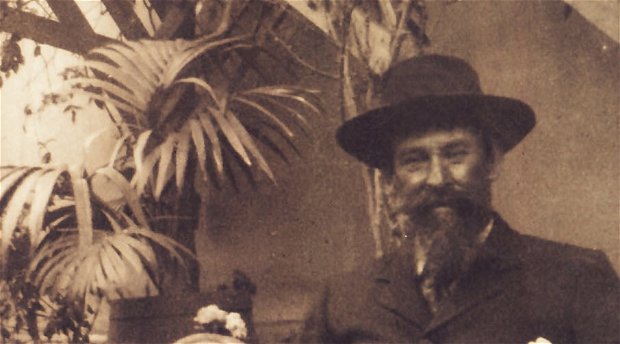
An interview with John Benn II, pilot at the Knysna Heads, conducted by an unknown author ("L.C."), and originally published in 1929. Reproduced from a typescript in the collection of Benn's great nephew, Michael Sass.
THE KNYSNA ADVERTISER. 1/2/1929 - INTERESTING CHAT WITH THE OLD PILOT, MR. JOHN BENN
It is safe to say that among Knysna’s old parishioners none are held in greater respect than Mr. John Benn, the old pilot. Finding him the other day in an out-house relieving huge sunflowers of their seeds, I sat down on an empty petrol case and told him I wanted him to talk about the old days. Afterwards, at his suggestion, we adjourned to the house and made ourselves comfortable in easy chairs. Often in course of conversation I had got snatches of his early experiences and had made up my mind that some day I would get him to turn on memory' s tap not only for my own benefit but for the benefit of a wider audience.
Now armed with notebook and pencil (although of course I did not intrude these too much, for there is nothing that checks spontaneity like the sensation of being interviewed), I said "now grandpa, I want you just to talk freely about the early days of Knysna.” “First of all", said he, “I want to show you a photo of the old pilot house, built by Mr. Jackson in 1857.” He then produced a photo of an old wooden house, quite respectable for those days, in which Mr. Jackson carried on business as a pilot, fisherman, boatbuilder and practically jack of all trades. He built the schooner ‘Annie S’, and sold it in Cape town for £300. - He was later appointed Port Captain at East London.
Birthplace and early life
In answer to a question as to Mr. Benn’s birthplace, he told me he was born at Breede River near Swellendam on Sept .12. 1846. So that next September he will be 83. His father who was also named John, went to live at Mossel Bay when the subject of this sketch was six years of age. His business was that of shipwright where he made lighters used for bringing cargo and passengers (chiefly cargo) from the sailing ships to shore.
Young John went to the only school at Mossel Bay, an English school run by Mr. John van der Riet. In those days there was no dual language question. Only English was used In the school and so far as we know, Mr. van der Riet (a Dutchman) raised no objection. Much water has gone under the bridges since then, but that Is another story. The Benn family moved to Knysna in 1855, the father continuIng his work as boat builder and joiner.
In those days the sailing vessels were brought ashore near the present jetty at high tide and left stranded. After being off-loaded they were again half loaded with timber and left to refloat with the tide. They were then navigated Into the river, the remainder of the cargo being taken to them in rafts.
For about three years young John went to school at Knysna, the master being a Mr. Homer, whether or not a descendant of the world famed Greek poet, Mr. Benn could not enlighten me. At the age of 19 he went to sea, and for three years sailed between Plettenberg Bay, Knysna, and Table Bay. The main cargo was 40 feet ironwood logs used for Cape town harbour. The jetties in those days were built of wood. Concrete had not come into use. The building of the breakwater had just begun. His first ship the “Galatea” was wrecked in a big gale on Woodstock beach in 1865. His next ship was the “Knysna Bell” and then he transferred to the "Annie Benn” a boat built by his father.
Up to this time no official pilot had been appointed at Knysna, the work had been done by private enterprise. Now, however, in 1868 Mr. John Benn, Snr. was made pilot, his son leaving the sea and came home as his assistant. For 44 years he held this appointment, being pensioned in 1912. Mr. Benn is proud to be able to state that during that whole period he had no accident In the course of his duties. He was twice capsized when on the outer bar, drifting back with the tide, boat bottom upwards. But this was when on fishing enterprises of his own. He saw several shipwrecks, In some cases, he affirms the ships were deliberately run on to the rocks for the sake of the insurance.
Mr. Benn said he sometimes wished he had remained pilot a few years longer so as to have been able to celebrate his jubilee as pilot.
He was silent about the high esteem in which he was held by the authorities, the medals and honours received at different times, the deference always paid to his knowledge and experience, the great trust placed both in his seamanship and character. But these things are well known to his friends.
The Historian C. M. Theal
Among Mr. Benn’s early associated was the famous South African historian, C. McCall TheaI. Mr. Theal as a young man lived here for a number of years, worked in the bush, taught in the school, was interested in boatbuilding and, indeed, was a young man among the young men of that time. Mr. Benn tells me that nobody ever suspected that Theal was destined for fame. He was however, always interested in the Bantu race and it was this interest which laid the foundation of his unrivalled historical knowledge of South Africa and its people.
Men Hanged in The Open Air
One of Mr. Benn’s earliest recollections is of an unique event that happened about 70 years ago.
A native of the Fingo race had murdered a man In the bush, almost severing his body with a bush axe. He was condemned to death and confined to a room where he could easily have escaped, but made no attempt to do so. Gallows were erected among the trees below where Mr. C. W. Thesen’s house now stands. Most ef the villagers came out to witness the tragic scene; the children only being as far as possible kept indoors. Mr. Benn remembering seeing the head fall. Such an event would naturally make a deep impression on the mind of a lad of 12. It was the one and only hanging in Knysna.
Knysna Seventy Years Ago
When Mr. Benn arrived In Knysna there were but 31 houses all of primitive design and with thatched roofs. Corrugated iron was unknown. The village was merely a little timber depot. He can only remember one person now living who was here when he came - Mrs. Kanock, now 100 years old. She can well remember the foundation being laid of the old English Church, lately superseded.
The village in those days was very isolated, about once in three months supplies were brought by sea. At times they ran very short of life's necessities. Once for a whole month they had to live on brown rice. Flour for bread could not be had. Those were the days of the transport rider. A flourishing business in timber was done with Aberdeen and Graff-Reinet. The roads were awful and at times the bullock wagons simply refused to budge.
The river was swarming with fish and sharks. Mr. Benn had caught many sharks eleven feet long. There were no nets in those days. He is of opinion that the present use of nets is ruining the river. In the old days no fish were sold. Everybody caught his own. I must admit that I am glad the sharks have been scared away.
"What about wild animals in the forest, Mr. Benn?” I asked, "Elephants, for example?” "Oh yes", said he, his face lighting up with a smile. “I used to see plenty of elephants. I have killed six. I have seen as many as 25 in one troop. There were wild pigs too and buffaloes Their special rendezvous was at Millwood and Blauwkrantz. I ate some biltong from the last buffalo that was killed in the forest".
Those were also the days of toevering (witchcraft). In fact up to 20 or 25 years ago the practice was common. Probably it is not extinct even yet. Not only did natives and coloured people follow this custom, but also Europeans. Under its influence all sorts of strange and weird things were done. Men have been known to climb trees and act like monkeys. People under the belief that they had been toevered were in a state of great fear and dread. It is believed that one means of toevering was to administer ground up roots in coffee. There Is still mystery surrounding the old custom. It would well repay some person with leisure to Investigate the subject, this district at one time being full of it.
Mr. Benn well remembers going out to the ill-fated "Drummond Castle" with his pilot boat and taking off Mr. and Mrs. Parkes the parents of Stephen and Mr. Howard Parkes when they first came to reside here. It was the last trip of the “Drummond”.
I did not bring the old pilot down to modern times or question him as to whether the former days were better than these. He could doubtless say much about present day Knysna and its people, but my object was to get a bird's eye view of the past, and my readers are left to decide whether or not it is interesting.
The old pilot is still as straight as a Iath. He carries his 82 summers with dignity and manliness. He often has aches and pains. He cannot do what he once could, but he cannot be idle. Out and about the garden, doing something in the house, his spirit will not let his body rest for long. He is a lovable old man and why should we wait till he is gone before we say so? Why pile all the flowers on a person’s grave when he can see them no more? Let us give our friends a few posies during their lifetime so that they can carry away still happier memories of this earth. When our old friend goes he will almost be the last of the old guard. But he is not going yet. May his remaining years be his brightest and best.
L.C.
Since writing the above I have seen Mr. Benn again and questioned him more closely about his medals etc., and I must ask the editor to find space for some more particulars. Hanging on the wall of the drawing room is a beautiful illuminated address on vellum which bears the following inscription.
PRESENTED TO JOHN BENN, PILOT.
“By the inhabitants of Knysna in recognition heroic courage displayed by him and the saving of four men who, while attempting to cross the Knysna Bar on the 9th of June, 1882, were capsized and would have been drowned had he not acted in such a fearless and gallant manner by going to their rescue at the imminent risk of his life and that of his boat's crew”.
There was also about 12 verses of a poem composed specially to celebrate the event. Mr. Benn has saved in all 16 lives from drowning. In 1883 he received the medal of the Royal Humane Society. In 1889 the much coveted Bronze Medal, He was also the recipient from his fellow townspeople of a beautiful case of three telescopes and barometer.
L.C.
____________________
The Brig "Galatea" In which Pilot John Benn sailed was wrecked in Table Bay during a heavy N'ly gale on the 17th of May 1865. Several other vessels went ashore during the same gale, the majority being total wrecks. The vessels stranded were the RMS “Athens”, Brig “Jane”, Cutter "Gem", 7 Barques - “Frederick Bassel”, "Alacrity”, "Diana”, “RoyalArthur", “City of Peterborough”, “RoyaI Minstrel”, "Star of the West”, 6 Schooners - "Isabella”, “Fernandez”, "Marie Johanna", “Reherwarder”, “Figitante”, “Clipper".
John Benn the father of Pilot John Benn was born at Deptford, England, on the 24th November 1812. He died at Knysna on the 20th May 1877, and his remains were buried in the graveyard of the English Church.
His son Pilot John Benn died the 25th November 1934, and his remains were buried in the English Church section of the Knysna Cemetery. Inscribed on the tombstone are the following words:
"He crossed the bar on the 25th November 1934 after
"weathering the storms for 88 years".
Erected by his children.
Mr. Donald Benn a brother of Pilot John Benn and who acted as second Pilot to his brother, retired 34 years ago and lives at Knysna. He was 94 years of age In February 1945, reads the newspaper every morning, enjoys his meals and sleeps well, and is still hale and hearty. He Is a bachelor.
Mr. Conning Benn, a son of Pilot John Benn retired on the 8th of April 1945 on his 60th birthday. As a youth he worked with his father in the port boat, later becoming signalman at the Heads Marine Signal Station and then Marine Signalman and River Pilot. During a time of good and faithful service, he never had an accident.
His son, Reuben Benn, of the S.A.R. & H. marine service, has taken over the position held by his father, grand-father, and great grandfather.
“As the twig is bent, so the tree inclines".
- Further reading:
The Poem Presented to John Benn II in 1882

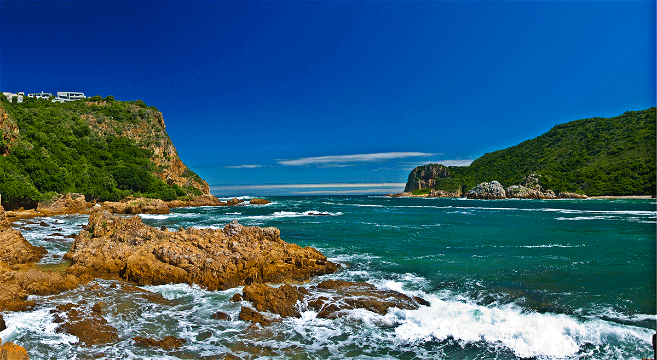
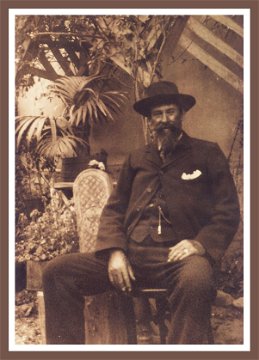
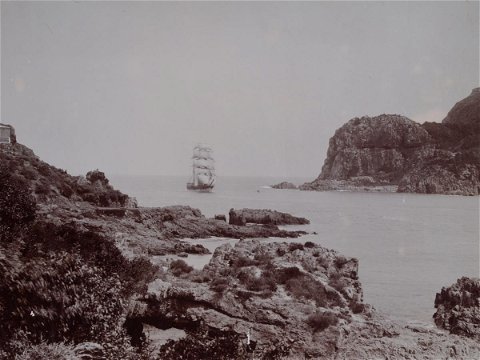
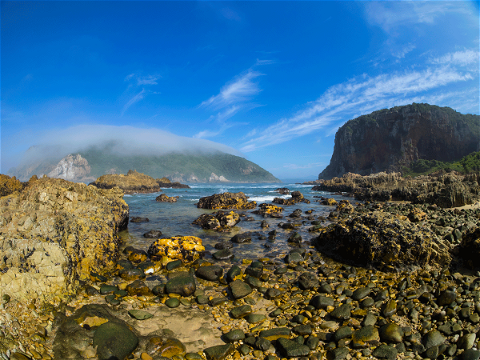
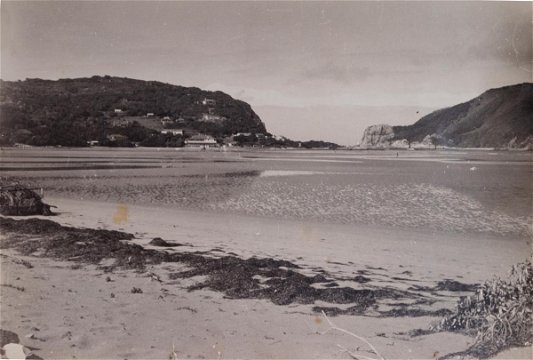
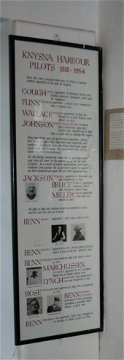

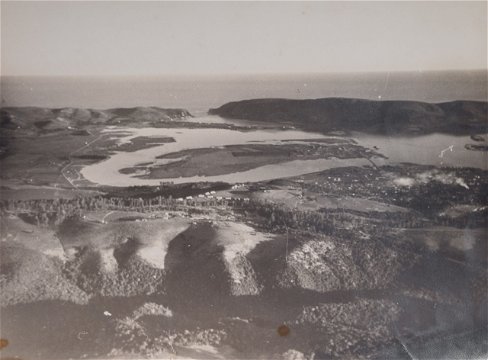
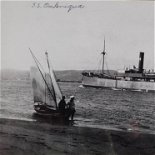
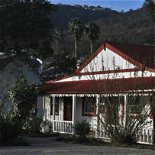
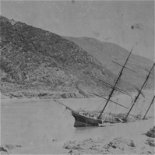
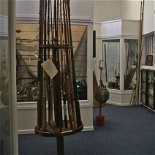
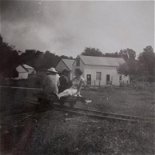
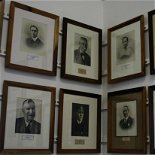
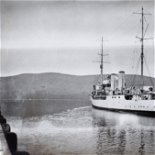
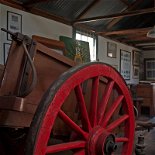
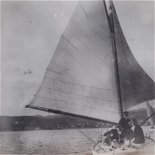
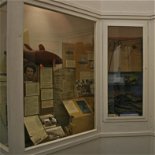
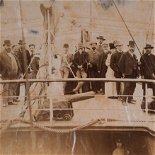
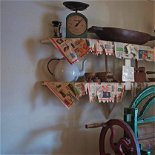
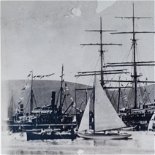
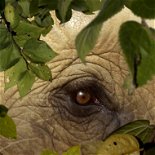
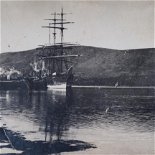
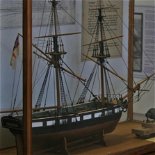
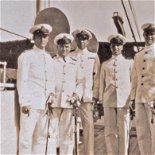
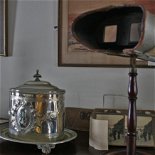
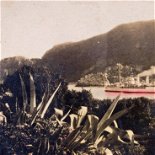
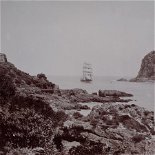
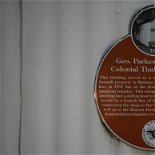
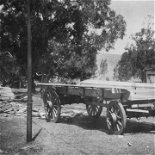
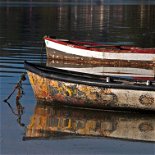
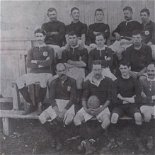
Share This Post